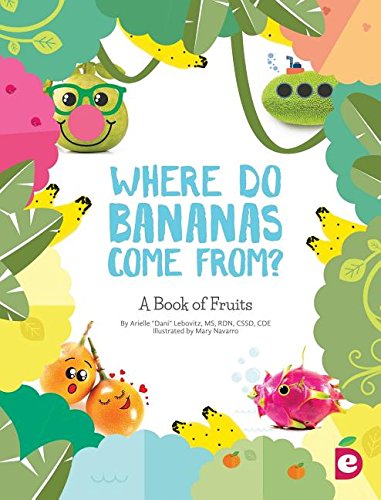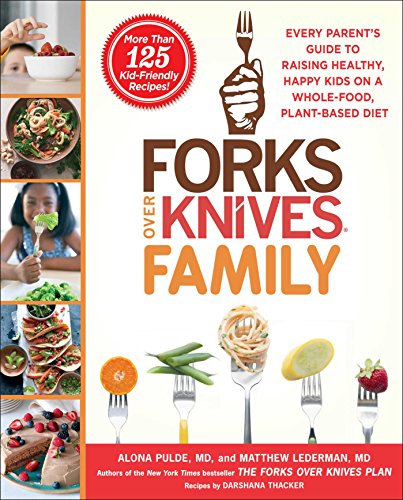WELCOME TO LITTLE EARTHLINGS! A SPECIAL SECTION FULL OF RESOURCES FOR FAMILIES POWERED BY PLANTS. THROUGH ALL PHASES OF LIFE, FAMILIES CAN GROW AND THRIVE EATING PLANT-BASED WITH A PROPERLY PLANNED DIET (AS ANY DIET SHOULD BE!).
YUMMY FOR THEIR TUMMIES? YOU BET! EASY PEASY? IT SURE CAN BE! AND MOST IMPORTANTLY, YOUR LITTLE EARTHLINGS CAN BUILD A STRONG FOUNDATION FOR THE LONG-TERM HEALTH OF THEIR BODIES AND THE EARTH.
THRIVE
Power Plate by Physician's Committee for Responsible Medicine (www.pcrm.org)
Most of us learn the basics of nutrition and eating from generations of familial belief systems, habits, and traditions (in addition to diving down the rabbit hole of internet searches and latest news hot topics!). So what if you're interested in plant-based nutrition for your family but this doesn't jive with your foundation of knowledge that you've become accustomed to? We've got you covered.
Eating habits may be the most important characteristic we pass along to our kids. More important than our genes. Thinking more plant-based helps us help our kids start preventative care even at the earliest of ages, building healthy habits for the long term. Starting out with some basic information and nutrition planning for you and your little ones can help you get started should you choose to work more plant foods in by the spoonfuls or handfuls. The whole family can absolutely thrive with a well-planned diet of veggies, fruits, legumes, whole grains, and nuts (plus an appropriately dosed B12 supplement!). Above is The Power Plate by the Physician's Committee for Responsible Medicine to help you visualize how to approach your plate, or what you and your little one's intake should be made up of over the course of a day. And variety is key! Eating your favorite fruits and vegetables can help your family get the basic nutrients but eating a rainbow of colors and a variety of whole grains and legumes (with some nuts and seeds, if you're not allergic!) can get you a larger variety of nutrients that you need and SO MUCH FIBER! :)
Following are links to articles that explore plant-based nutrition for the whole family. Like with any dietary change, it's important to discuss and plan this with your own health care team as you make changes, but the sources below are from leading doctors and advocates in the field of plant-based nutrition and offer a rounded and more detailed view on how to begin to approach a plant-based diet with even the youngest foodies in mind. These will also begin to answer your protein questions, dig into some of the issues with eating a diet high in animal products, and any special considerations in meal planning including vitamin B12. Keep scrolling further to EAT and IMPACT below for more tips on eating and cooking plant-based with kids and other ways to engage your whole family in eating for personal health and the health of our planet and fellow earthlings.
Nutrition for Kids: A Dietary Approach for Lifelong Health by Physicians Committee for Responsible Medicine
Raising Kids on a Plant-Based Diet by Leann Campbell for Naked Food Magazine
The Plantrician Project’s Pediatric Plant-Based Nutrition Quickstart Guide
Plant Based Pediatrician, Dr. Jackie Busse
Diet, Children, and the Future by John McDougall, M.D. for Forks Over Knives
Position of the Academy of Nutrition and Dietetics: Vegetarian Diets by the Academy of Nutrition and Dietetics
Plant Based Juniors’ Predominantly Plant Based Pregnancy Guide
And here are some great books for kids and families on healthy eating and plant-based nutrition!
“IT IS THE POSITION OF THE ACADEMY OF NUTRITION AND DIETETICS THAT APPROPRIATELY PLANNED VEGETARIAN, INCLUDING VEGAN, DIETS ARE HEALTHFUL, NUTRITIONALLY ADEQUATE, AND MAY PROVIDE HEALTH BENEFITS IN THE PREVENTION AND TREATMENT OF CERTAIN DISEASES. THESE DIETS ARE APPROPRIATE FOR ALL STAGES OF THE LIFE CYCLE INCLUDING PREGNANCY, LACTATION, INFANCY, CHILDHOOD, ADOLESCENCE, OLDER ADULTHOOD, AND FOR ATHLETES. PLANT-BASED DIETS ARE MORE ENVIRONMENTALLY SUSTAINABLE THAN DIETS RICH IN ANIMAL PRODUCTS BECAUSE THEY USE FEWER NATURAL RESOURCES AND ARE ASSOCIATED WITH MUCH LESS ENVIRONMENTAL DAMAGE. ”
EAT
Eating more plant-based foods with your whole family may take a bit of transitioning, but there are so many recipes and plant-based substitutes for favorite dishes so you and your kids can find eating more whole foods a whole lotta fun. Following are plant-based and vegan eating resources and cookbooks specifically focused on pregnancy, babies, kids and young adults! And never fear, PBSB is here - more tips to come on THE VINE!
Books on plant-based nutrition and eating that are family friendly or with a kid-edge (you can also find the books mentioned on this page in our Toolkit for Little Earthlings!):
And few more quick internet reads I like -
21 Kid-Friendly Ideas and Recipes to Help Them Love Vegan Foods by Pamela Fergusson, RD, PhD for No Meat Athlete
Top 10 Recipes for Back to School and Tips for Packing School Lunches by Dreena Burton, Plant-Powered Kitchen
What about plant-based eating at school - beyond the lunch box? This is worth exploring too! Talk to your child's teacher about their special diet and after school programs to coordinate bringing any substitutes for special occasions or regular snacks (if snacks are provided). PCRM makes it easy to start talking plant-based with your school or school district - visit Healthy School Food at PCRM.org for more info. Also check out One Meal a Day’s School Lunch Campaign online headquarters if you’re looking to advocate to make your school lunch more plant-friendly.
Interested in more practical tips for eating plant-based with your kids in SB? Follow us on THE VINE for specific Little Earthling focused posts!
“YOUNG PEOPLE, WHEN INFORMED AND EMPOWERED, WHEN THEY REALIZE THAT WHAT THEY DO TRULY MAKES A DIFFERENCE, CAN INDEED CHANGE THE WORLD. WE SHOULD NEVER UNDERESTIMATE THE POWER OF DETERMINED YOUNG PEOPLE. ”
IMPACT
Kids can start living a plant-based lifestyle that further supports something they are especially passionate about with your help. Are you interested in opening your whole family up to greater ideas about plant-based living? Or perhaps your little one has a special place in their heart for animals, or the ocean, or helping others, or a passion to improve the environment? Following are some resources and organizations that can help you and your kids learn more about ways to contribute to a kinder, cleaner, healthier world.
DAWG (Dog Adoption & Welfare Group)
K-9 Pals (K-9 Placement & Assistance League)
ASAP (Animal Shelter Assistance Program)
BUNS (Bunnies Urgently Needing Shelter)
Visit The Gentle Barn (Southern California)
Visit the Farm Sanctuary (Southern California)
And here are some special books for exploring Little Earthling living with your kids:






















